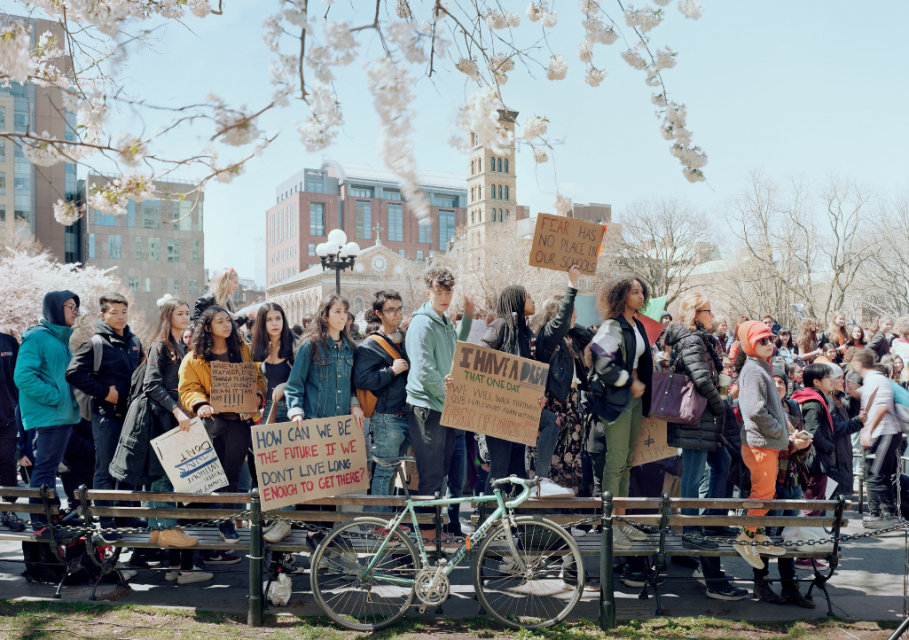TITLE_NAME :
11/05/2023 - 03/16/2024
MoMA - THE MUSEUM OF MODERN ART
11 West 53 Street
NY 10019 New York
www.moma.org
For 30 years, the photographs of artist An-My Lê have engaged the complex fictions that inform how we justify, represent, and mythologize warfare and other forms of conflict. Lê does not take a straightforward photojournalistic approach to depicting combat. Rather, with poetic attention to politics and landscape, she meditates on the meaning of perpetual violence, war’s environmental impact, and the significance of diaspora. “Being a landscape photographer,” she has said, “means creating a relationship between various categories—the individual within a larger construct such as the military, history, and culture.”
An-My Lê: Between Two Rivers/Giữa hai giòng sông/Entre deux rivières is the first exhibition to present Lê’s powerful photographs alongside her forays into film, video, textiles, and sculpture. Never-before-seen embroideries—some large scale, others the size of a laptop screen—and rarely shown photographs from her Delta and Gabinetto series explore the relationship between mass media, gender, labor, and violence. And an immersive installation created especially for the exhibition attests to the artist’s long-standing consideration of the cinematic dimensions of photography and war.
Born in Vietnam in 1960, Lê came to the United States in 1975, after the fall of Saigon, as a political refugee. The two rivers in the exhibition’s title refer to the Mekong and Mississippi river deltas, to Vietnam and the United States. The phrase also gestures toward other subjects that Lê has inflected with her own experiences of war and displacement, from the Seine, to the Hudson River, to the Mexican-American border along the Rio Grande. It is a metaphor that invites viewers to reflect on the circularity of time and history, the layering of disparate geographies, and the intimacies that paradoxically grow out of conflict.
MoMA - THE MUSEUM OF MODERN ART
11 West 53 Street
NY 10019 New York
www.moma.org
For 30 years, the photographs of artist An-My Lê have engaged the complex fictions that inform how we justify, represent, and mythologize warfare and other forms of conflict. Lê does not take a straightforward photojournalistic approach to depicting combat. Rather, with poetic attention to politics and landscape, she meditates on the meaning of perpetual violence, war’s environmental impact, and the significance of diaspora. “Being a landscape photographer,” she has said, “means creating a relationship between various categories—the individual within a larger construct such as the military, history, and culture.”
An-My Lê: Between Two Rivers/Giữa hai giòng sông/Entre deux rivières is the first exhibition to present Lê’s powerful photographs alongside her forays into film, video, textiles, and sculpture. Never-before-seen embroideries—some large scale, others the size of a laptop screen—and rarely shown photographs from her Delta and Gabinetto series explore the relationship between mass media, gender, labor, and violence. And an immersive installation created especially for the exhibition attests to the artist’s long-standing consideration of the cinematic dimensions of photography and war.
Born in Vietnam in 1960, Lê came to the United States in 1975, after the fall of Saigon, as a political refugee. The two rivers in the exhibition’s title refer to the Mekong and Mississippi river deltas, to Vietnam and the United States. The phrase also gestures toward other subjects that Lê has inflected with her own experiences of war and displacement, from the Seine, to the Hudson River, to the Mexican-American border along the Rio Grande. It is a metaphor that invites viewers to reflect on the circularity of time and history, the layering of disparate geographies, and the intimacies that paradoxically grow out of conflict.


